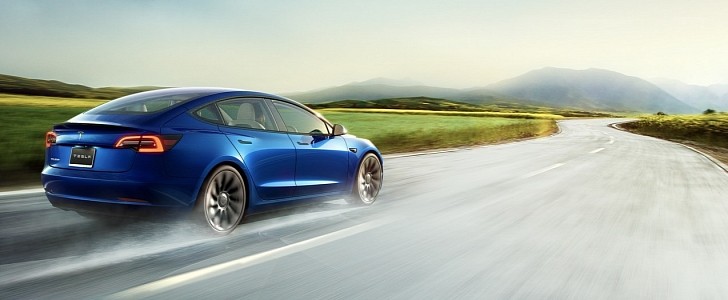The Indian government told Tesla a while ago that it would not accept EVs imported from China. It also said that it would not offer the company tax incentives, something that Elon Musk said a while ago that he was totally against. The end of that story is more than predictable: Tesla gave up on selling its cars in the country, at least for now.
Reuters learned from three different sources that Tesla stopped looking for locations for its service centers in the country. The EV maker is also reallocating its Indian employees or having them handle issues from other markets. That will put customers who complained about their Model 3 reservations in an even more difficult situation.
As we mentioned on April 29, some of these customers pre-ordered the car in 2016 and are still waiting for a refund. Those who still had hopes they could get the EV can now tell them farewell. There is no perspective that things will change anytime soon to convince Tesla it is a good idea to sell its EVs in the country.
Reuters explained that Tesla wanted to evaluate the market potential by selling imported cars in India before establishing a factory there. In 2021, car sales increased by 21% there, and the country surpassed 3 million units for the third time in history. That shows how small the Indian market is, even if its population promises a bright future if India finds a path toward development and higher wages.
For Tesla, it would only make sense to have a factory in India if it could export the EVs and if the country already had a supplier base for electric cars, such as battery manufacturers. China already produces vehicles for export in the region, making India’s chances of getting one even smaller. To make matters worse, Tesla should build a new factory in China for 450,000 EVs per year right next to Giga Shanghai.
The deal is that the Indian government said it would not give Tesla any special treatment concerning imported cars. They pay tariffs of up to 100%, making prices already pretty high for Indian customers almost prohibitive. An entry-level Model 3 would end up costing the equivalent of $80,000, which is just a little less than American buyers pay on a Model S Plaid.
For Tesla, it just does not make financial sense. If it can sell its cars elsewhere – where it already has a well-established infrastructure (Tesla Service Centers and Superchargers) – why spend millions to sell a few hundred cars? For India, it does not make sense to sell imported vehicles, as its protectionist policies make it very clear. We feel sorry for the Model 3 reservation holders caught in between them.
As we mentioned on April 29, some of these customers pre-ordered the car in 2016 and are still waiting for a refund. Those who still had hopes they could get the EV can now tell them farewell. There is no perspective that things will change anytime soon to convince Tesla it is a good idea to sell its EVs in the country.
Reuters explained that Tesla wanted to evaluate the market potential by selling imported cars in India before establishing a factory there. In 2021, car sales increased by 21% there, and the country surpassed 3 million units for the third time in history. That shows how small the Indian market is, even if its population promises a bright future if India finds a path toward development and higher wages.
For Tesla, it would only make sense to have a factory in India if it could export the EVs and if the country already had a supplier base for electric cars, such as battery manufacturers. China already produces vehicles for export in the region, making India’s chances of getting one even smaller. To make matters worse, Tesla should build a new factory in China for 450,000 EVs per year right next to Giga Shanghai.
The deal is that the Indian government said it would not give Tesla any special treatment concerning imported cars. They pay tariffs of up to 100%, making prices already pretty high for Indian customers almost prohibitive. An entry-level Model 3 would end up costing the equivalent of $80,000, which is just a little less than American buyers pay on a Model S Plaid.
For Tesla, it just does not make financial sense. If it can sell its cars elsewhere – where it already has a well-established infrastructure (Tesla Service Centers and Superchargers) – why spend millions to sell a few hundred cars? For India, it does not make sense to sell imported vehicles, as its protectionist policies make it very clear. We feel sorry for the Model 3 reservation holders caught in between them.























